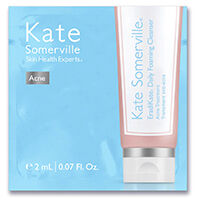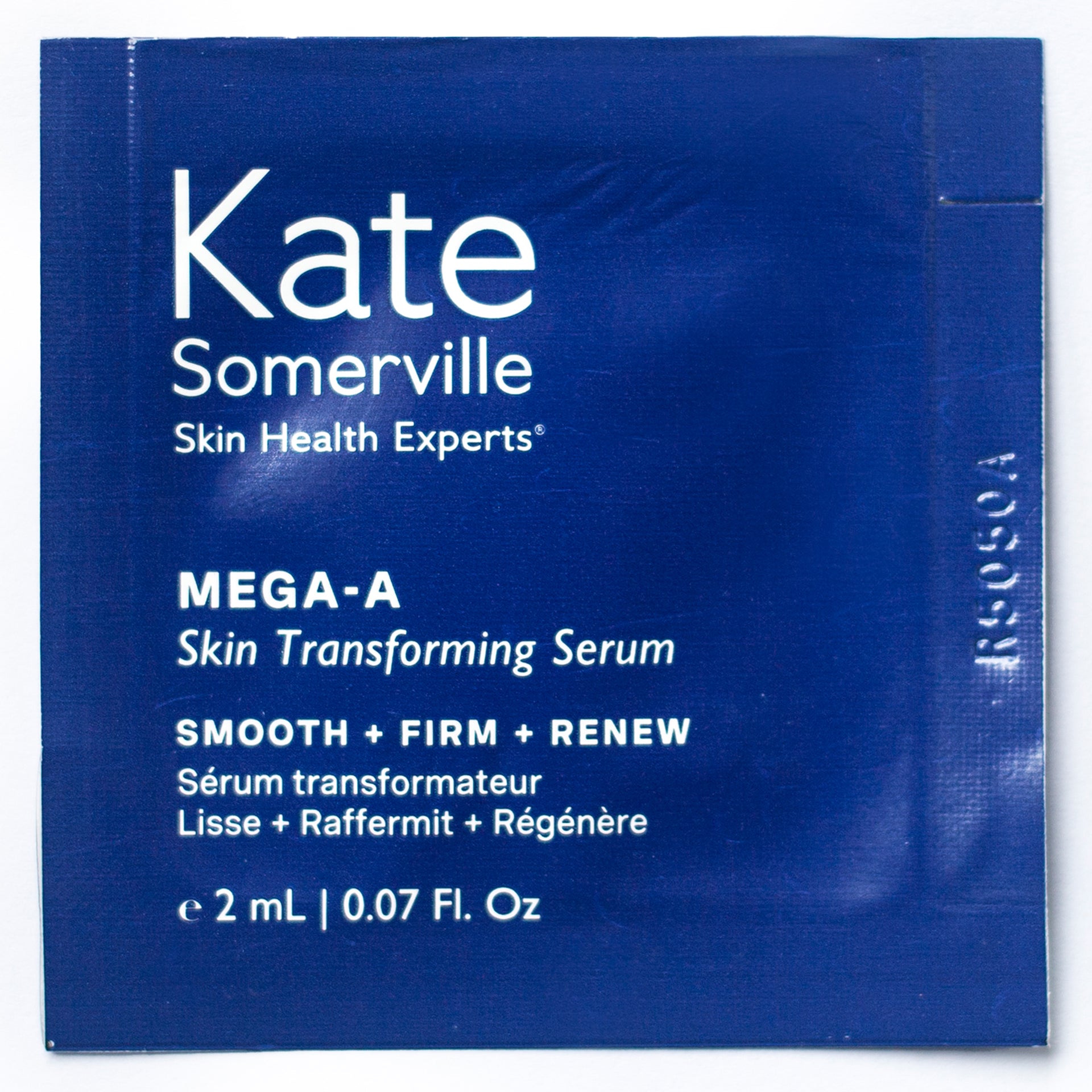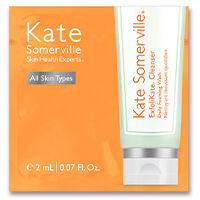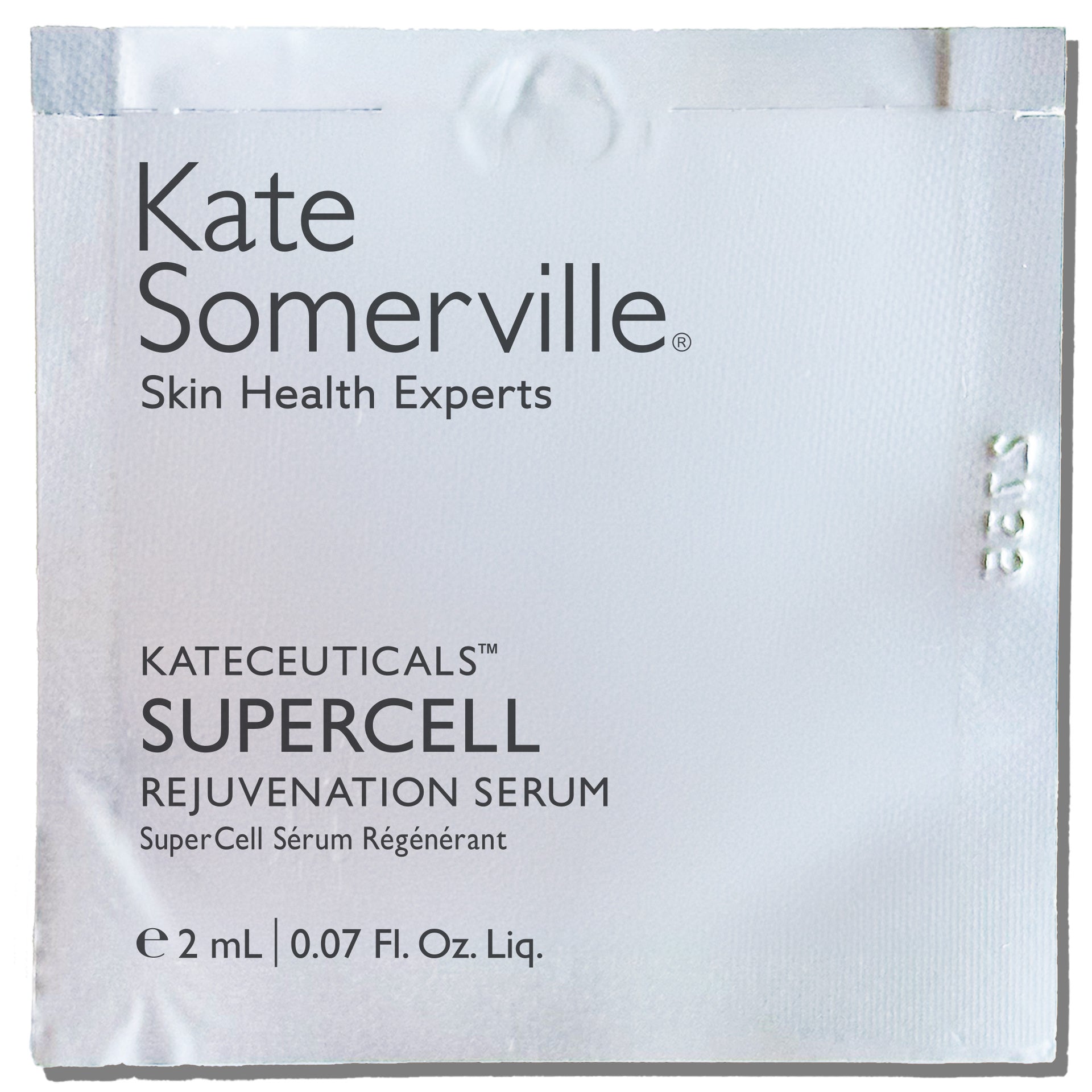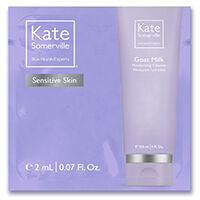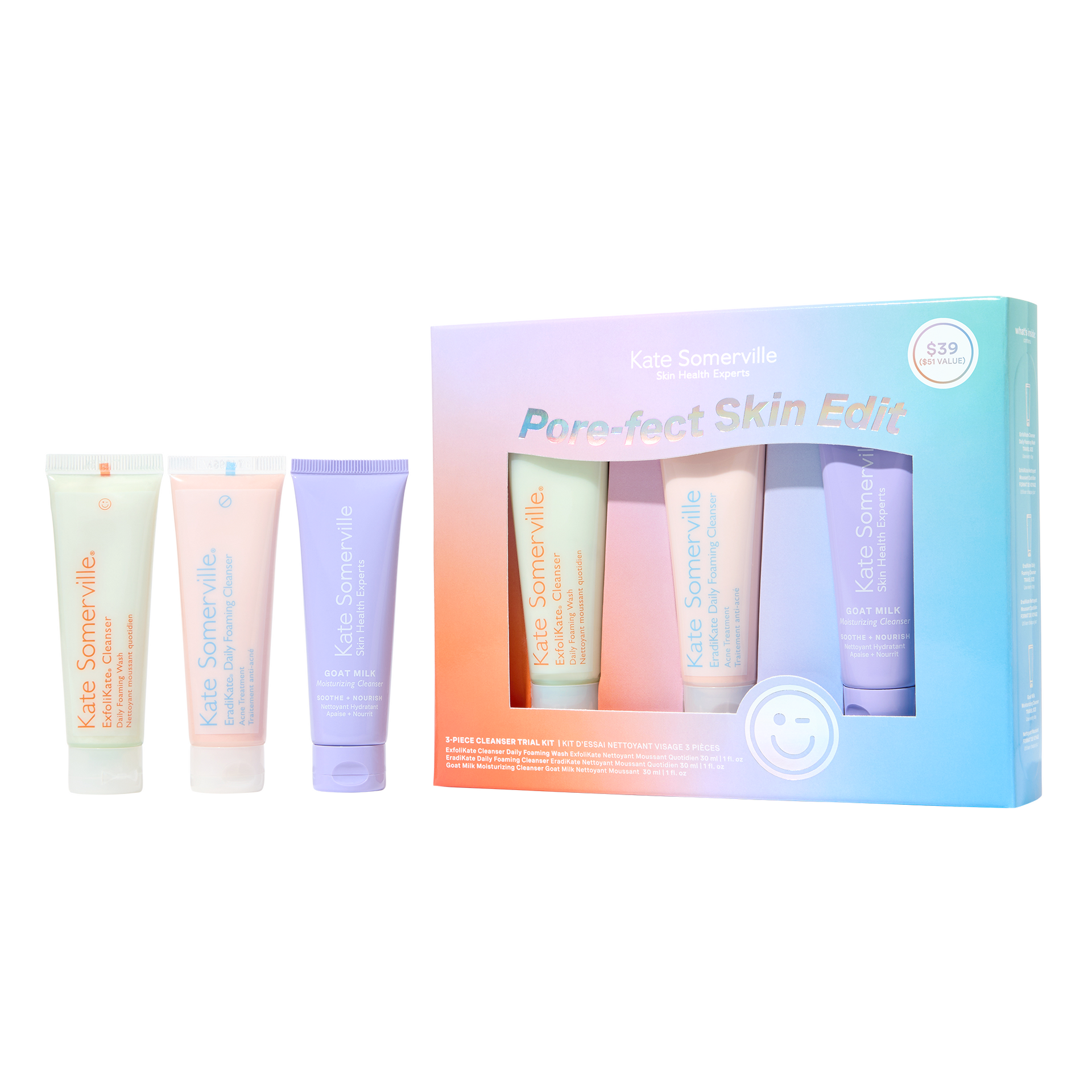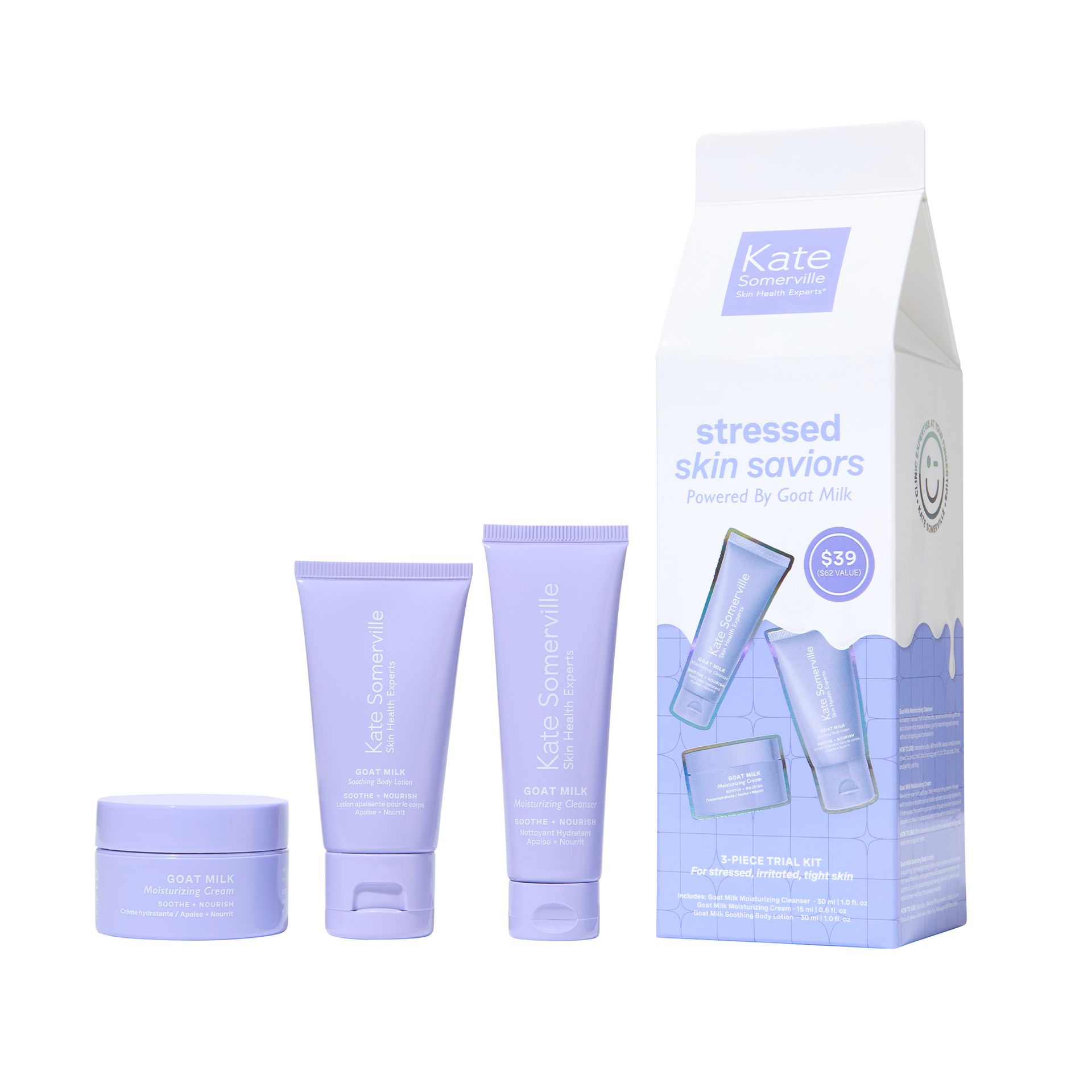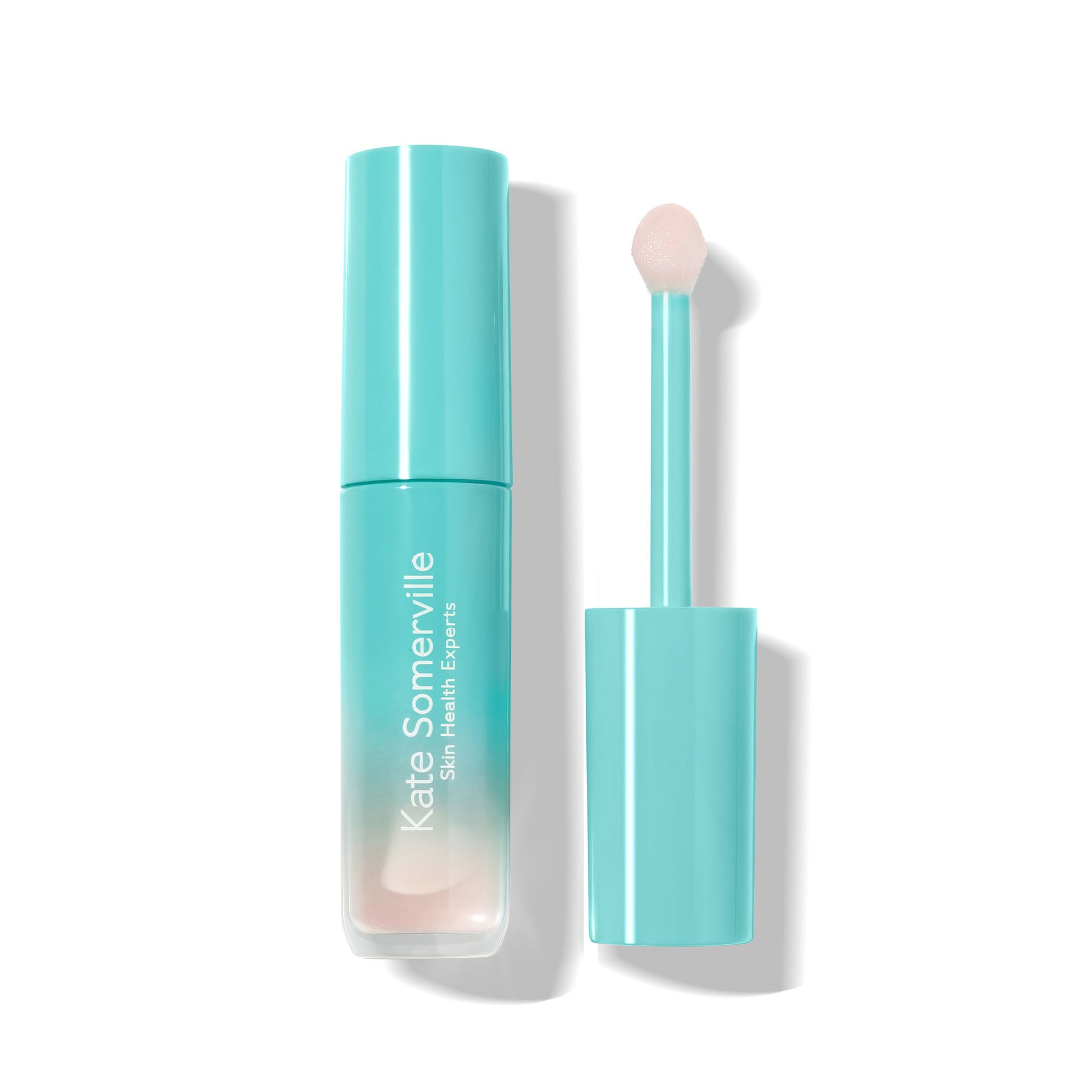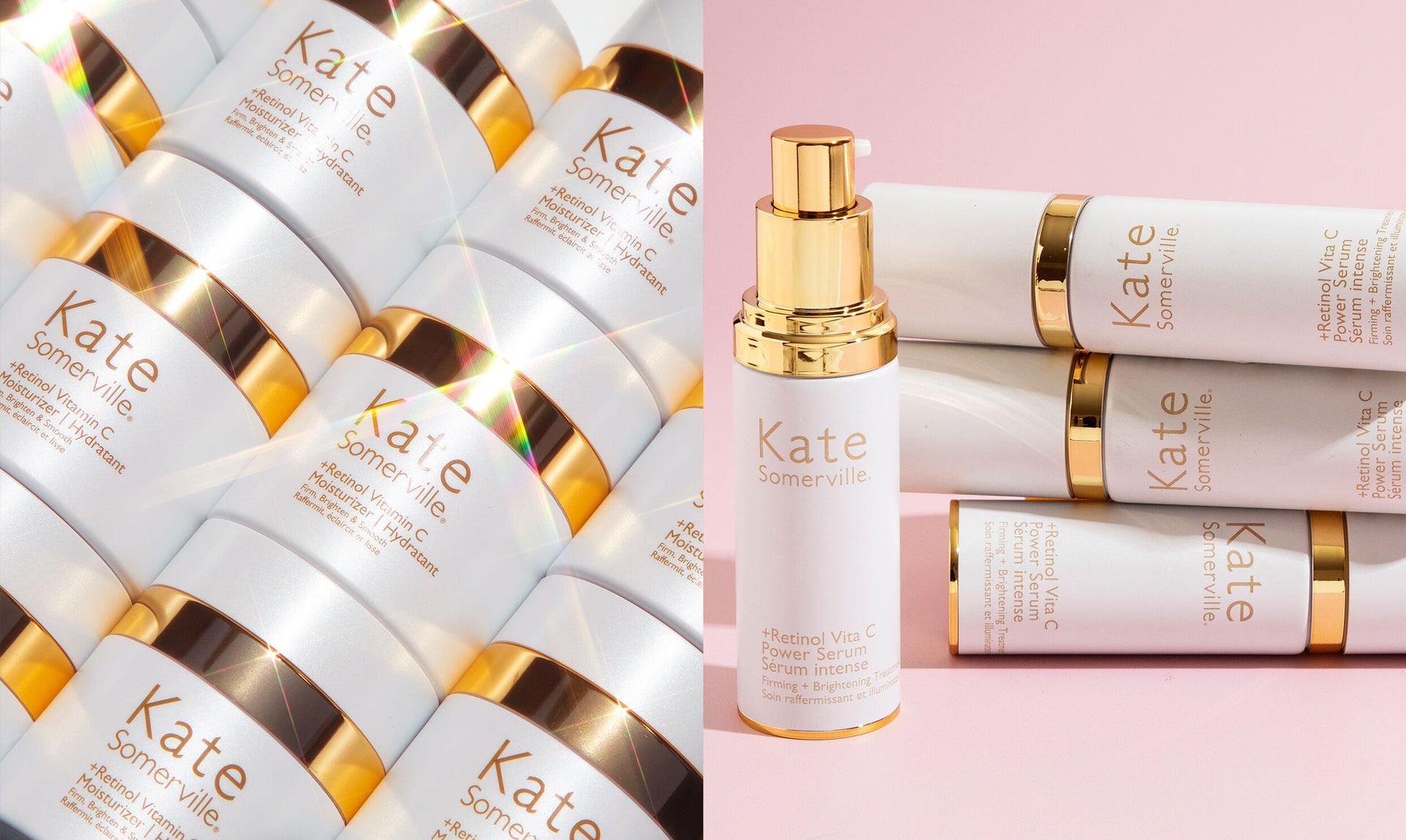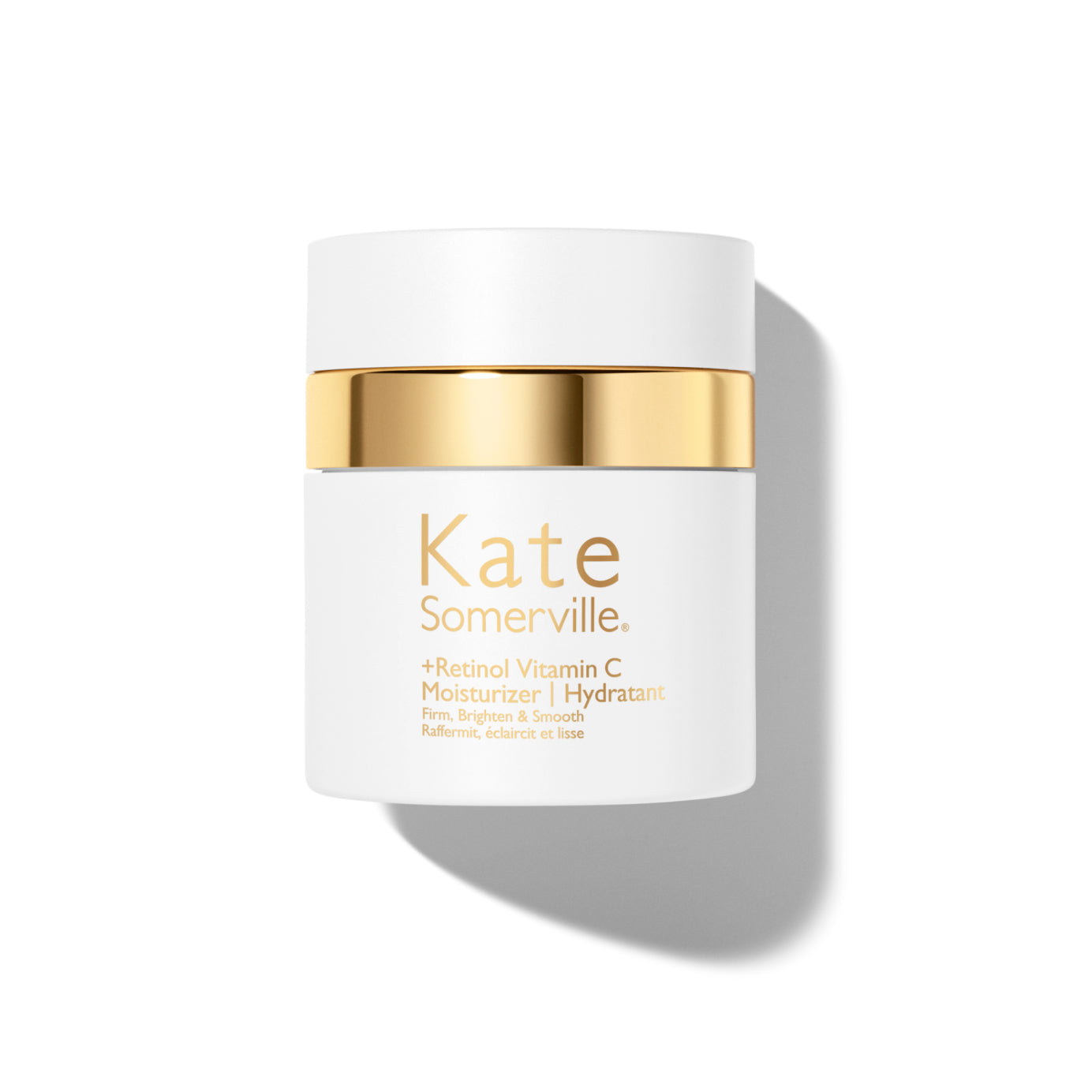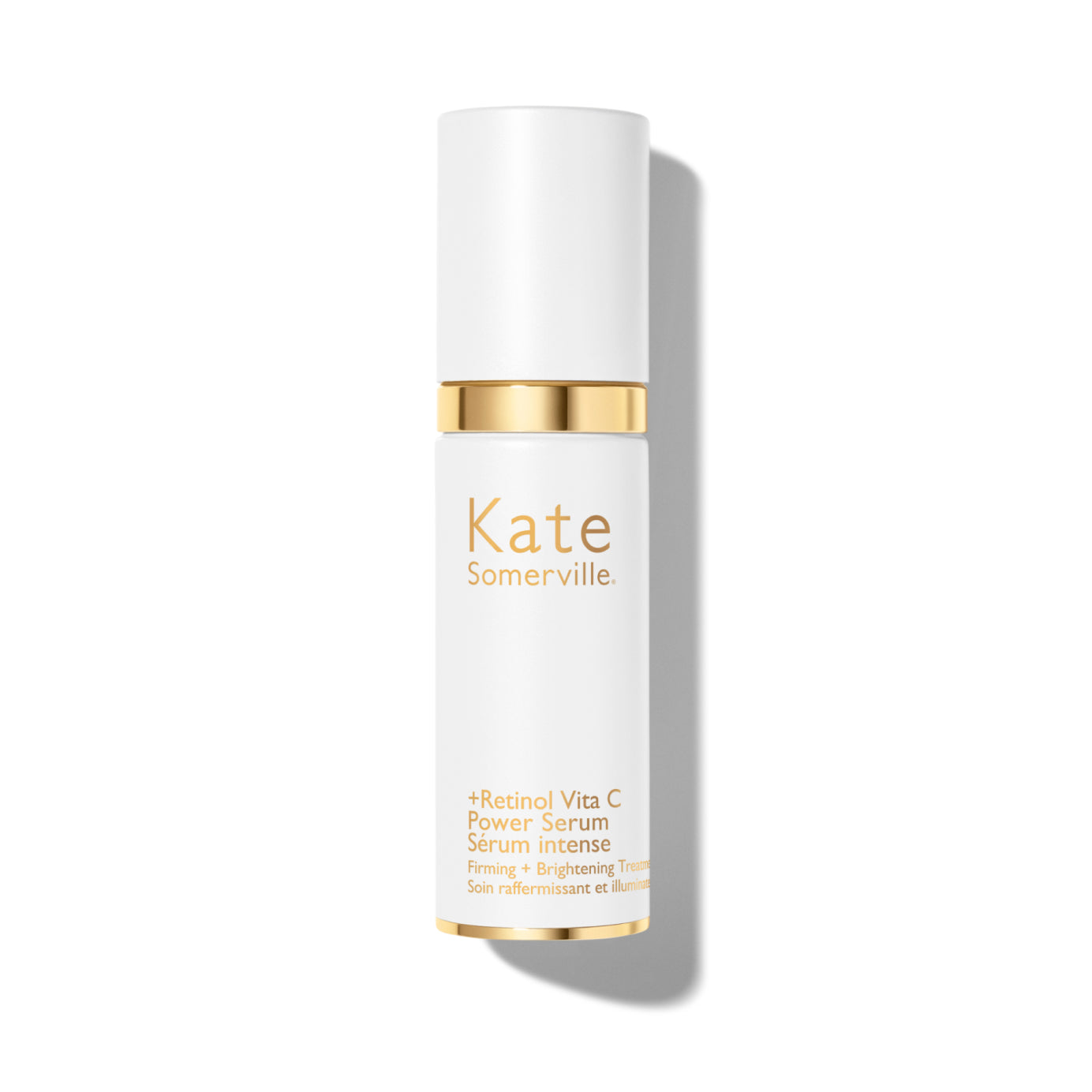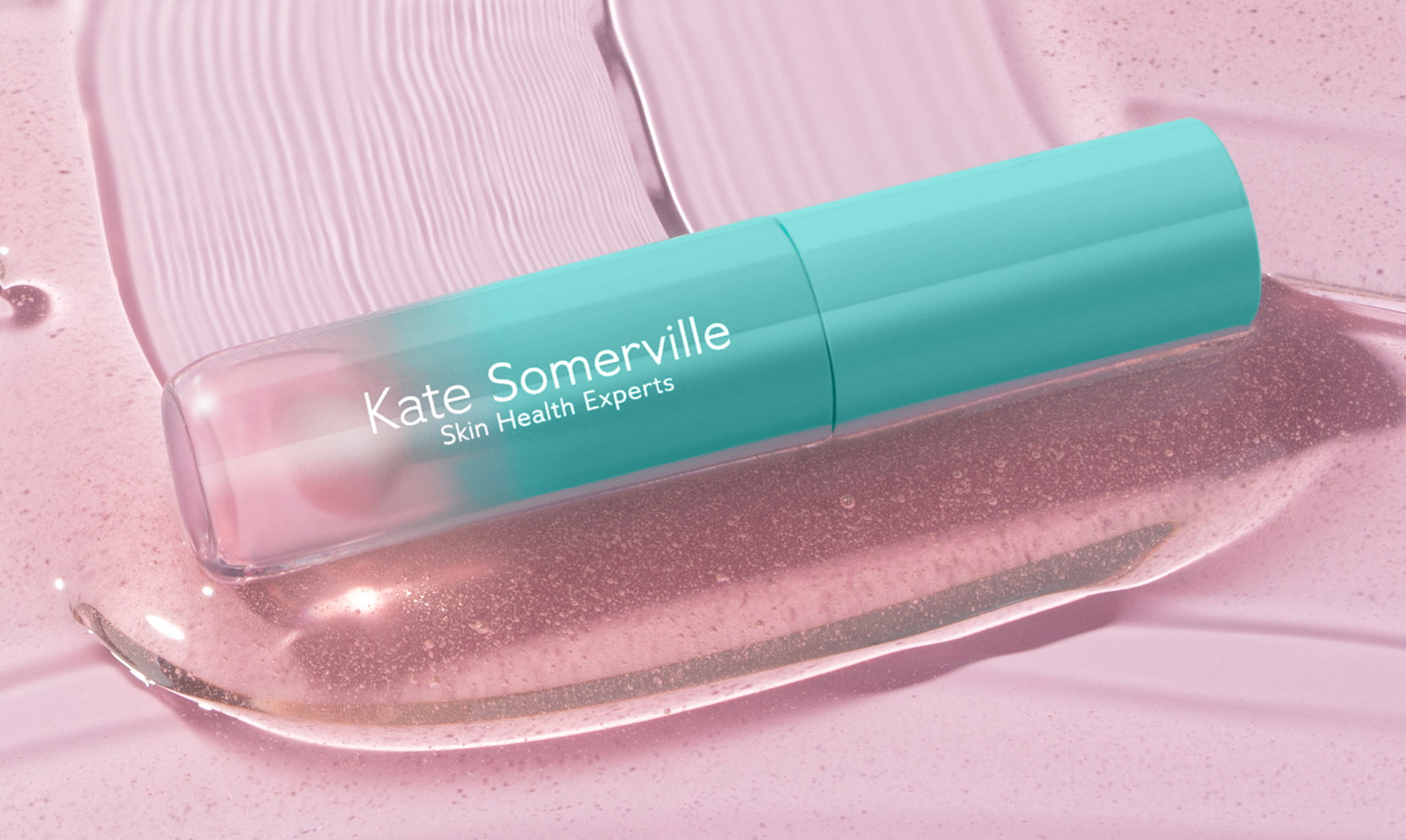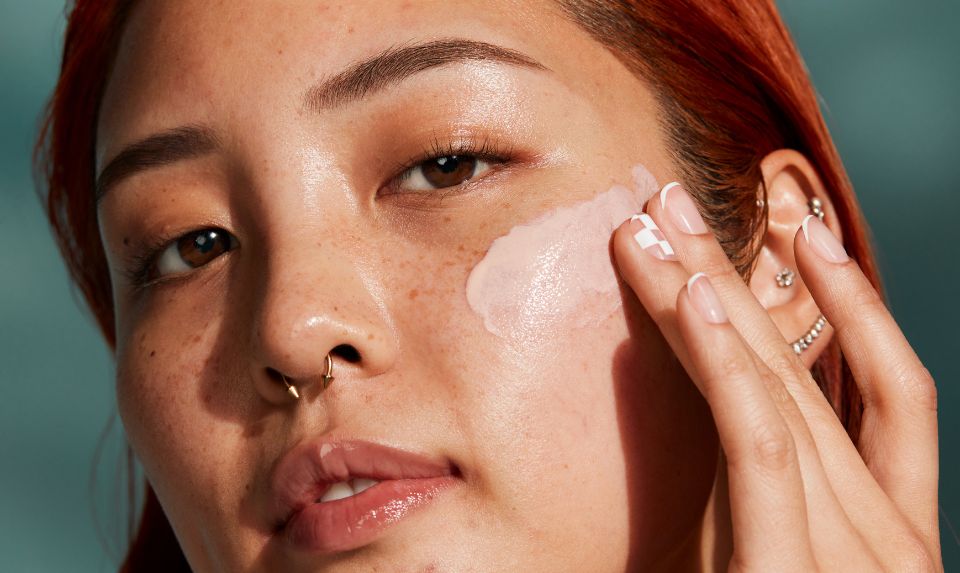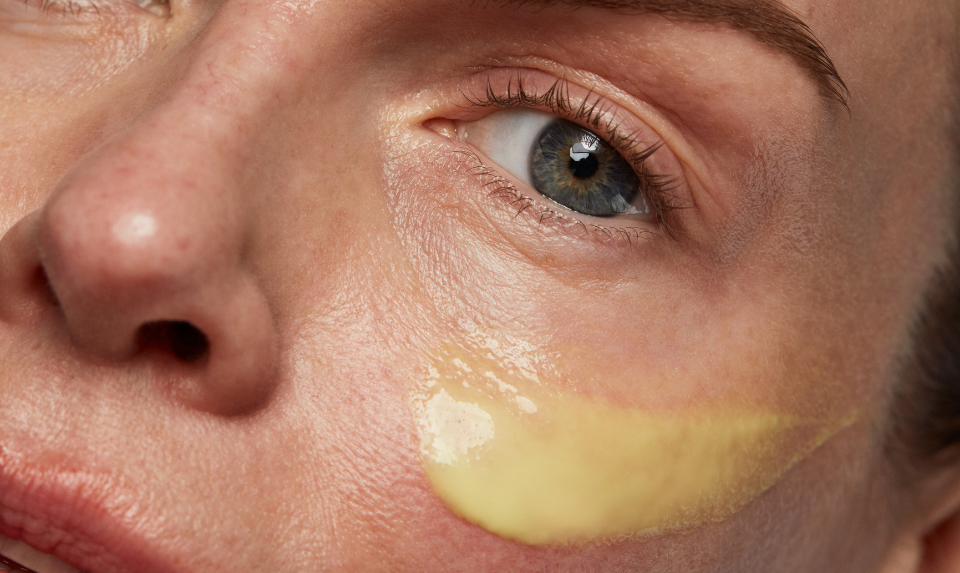Are you a frequent browser of new skincare products? Do you study labels, read up on ingredients, and wonder which products and ingredients are truly worth investing in? If you do, you’ve most likely come across a variety of skincare products that contain retinol. Maybe you’ve even tried retinol. Or, if you’re like some of our clinic clients with oily or blemish-prone skin, you may be intrigued by the incredible results retinol delivers… but not sure if retinol is safe to use on your acne-prone skin.
Our Skin Health Experts are here to reveal just how retinol can help you with the bumps and blemishes that have been a persistent bother since you were a teenager - or that started in adulthood.
Along with its anti-aging properties, retinol might be a viable option for helping acne prone skin and visibly reducing the appearance of scars and marks left behind. Our founder Kate discovered her appreciation for retinol when her son was struggling with teenage breakouts. She and her son saw a remarkable visible improvement in his skin with consistent retinol use.
So how can retinol help you and your acne-prone skin? And what kind of retinol product will work the best?
Retinol comes in a few forms, including retinol serum, retinol cream, lotion, and gel for different skincare product preferences. Let’s dive into retinol, its benefits, and how it may help you achieve clearer, smoother, and healthier-looking skin.
What is Retinol?
Retinol is a fat-soluble derivative of vitamin A (1). Sometimes, you may hear the term retinol used interchangeably with retinoids, but they aren’t the same thing.
- Retinoids (2) – Retinoids are the name for any product that contains derivatives of vitamin A. In skincare, they come in both oral and topical forms. The strength varies widely from over-the-counter to prescription level.
- Retinol – Retinol is a type of retinoid that’s typically a little gentler on your skin when used to treat certain conditions.
While retinol is one of the less potent retinoids, it’s available without a prescription and can still offer your skin several benefits with regular use.
How Can Retinol Benefit Your Skin?
When you apply retinol topically via a skincare product like the Kate Somerville DermalQuench Liquid Lift™ +Retinol - a powerhouse hydration treatment that firms, smooths and plumps the skin - or one of Kate’s expertly formulated Retinol + Vitamin C products, here are just some of the benefits your skin receives:
- Helps unblock pores – The exfoliating properties in retinol come from its ability to encourage the skin cell turnover of old cells and replace them with new ones. This helps remove dry skin and oil that can clog pores and lead to acne and blackheads.
- Reduces the signs of aging – Retinol works to help skin regain some of its elasticity. This helps smooth out those wrinkles and fine lines that may have developed over time.
- Improves the texture and tone of skin – Retinol is also incredibly effective at clearing pores and smoothing over lines, giving your skin a better overall texture.
- Regulates the over-production of oil – While retinol hasn’t been shown to have a direct impact on oil production, it does help keep your pores clearer. This, in turn, may help prevent your sebaceous glands (aka, your oil-producing glands) from going into overdrive.
These benefits of retinol work together to produce clearer, brighter, and healthier-looking skin.
How Does Retinol Relate to Acne Treatment?
So, what does all of this have to do with acne?
Acne is the result of an overproduction of sebum, or oil, that traps dead skin cells in your pores. This leads to the red bumps, painful swelling, and overall irritation known as acne. Retinol’s pore-clearing abilities, combined with its ability to improve the tone and texture of your skin may help reduce the number of breakouts you get over time (3).
How Should You Use Retinol Products?
Retinol products come in many different forms, including:
- Creams
- Lotions
- Serums
- Gels
When it comes to application, it’s best to follow your dermatologist’s advice and stick to the recommended dosage. At Kate Somerville, our Skin Health Experts advise starting off slow when you’re new to using retinol. Use one product once or twice a week and see how your skin responds. As skin gets used to retinol, you can increase the frequency of use to 3-4 times per week. And never use more than one retinol product in any particular day or night regimen. If you have both a serum and cream like our +Retinol Vita C Serum and +Retinol Vitamin C Moisturizer in your beauty cabinet, we recommend using them on different nights of the week, preferably with a night off of using retinol in between. Retinol is best used at night. In the morning, apply sunscreen at the end of your skincare routine as skin may be more sensitive to the sun.
Are There Side Effects to Using Retinol?
It’s important to use only the recommended amount of retinol on your skin because it often does come with side effects. The stronger the product, the more likely you are to experience some irritation.
Common side effects may include (4):
- Sensitivity to the sun
- Dry and itchy skin
- A burning sensation
- Peeling
- Irritation and redness
These side effects typically resolve on their own over time. However, you should always alert your dermatologist or Kate Somerville Skin Health Expert if they’re persistent or particularly uncomfortable.
Different skin types can also have different side effects to using retinol. An individual with an oily skin type may react better to retinol than an individual with a dry skin type or sensitive skin type. Keep in mind your skin type and ask your dermatologist if you're unsure of retinol usage.
Find Your Skin’s Perfect Balance with Kate Somerville
Retinol skin care products are incredibly popular. They’re used to help reduce the signs of aging, keep your pores clear, and give your skin a more even appearance. Together, these benefits may also help acne-prone skin and visibly reduce the appearance of scars and marks left behind.
If you’re in search of a new skincare routine that includes retinol, try Kate Somerville. We’re a team of skincare experts committed to helping you achieve your best skin yet with our luxe skincare collection expertly formulated to achieve results similar to those we get when a client visits us in our Skin Health Experts Clinics in Los Angeles or New York. We specifically created our +Retinol Try Me Kit—a three piece kit that includes Kate’s nighttime turnaround cream and moisturizer, the +Retinol Vitamin C serum, and firming eye cream – to show you the power of this amazing ingredient and give you the opportunity to try all three unique formulations - one at a time with a night off in between, of course.
Order your kit today to experience retinol for yourself, or contact us to schedule a consultation with one of our Skin Health Experts. You can also explore other acne-fighting ingredients and topics, such as if niacinamide helps with acne on our blog.
1. PubChem. Retinol. https://pubchem.ncbi.nlm.nih.gov/compound/Retinol
2. Advances in Dermatology and Allergology. Retinoids: Active Molecules Influencing Skin Structure Formation in Cosmetic and Dermatological Treatments. https://www.ncbi.nlm.nih.gov/pmc/articles/PMC6791161/
3. Journal of Drugs in Dermatology. An Advanced, Physician Strength Retinol Peel Improves Signs of Aging and Acne Across a Range of Skin Types Including Melasma and Skin of Color. https://jddonline.com/articles/dermatology/S1545961619P0918X
4. Pharmaceutics. Targeted Topical Delivery of Retinoids in the Management of Acne Vulgaris: Current Formulations and Novel Delivery Systems. https://www.ncbi.nlm.nih.gov/pmc/articles/PMC6835300/
Sources:
PubChem. Retinol. https://pubchem.ncbi.nlm.nih.gov/compound/Retinol
Advances in Dermatology and Allergology. Retinoids: Active Molecules Influencing Skin Structure Formation in Cosmetic and Dermatological Treatments. https://www.ncbi.nlm.nih.gov/pmc/articles/PMC6791161/
Aesthetic Surgery Journal. Cosmeceuticals: The Evidence Behind the Retinoids. https://academic.oup.com/asj/article/30/1/74/199813
Journal of Drugs in Dermatology. An Advanced, Physician Strength Retinol Peel Improves Signs of Aging and Acne Across a Range of Skin Types Including Melasma and Skin of Color. https://jddonline.com/articles/dermatology/S1545961619P0918X
Pharmaceutics. Targeted Topical Delivery of Retinoids in the Management of Acne Vulgaris: Current Formulations and Novel Delivery Systems. https://www.ncbi.nlm.nih.gov/pmc/articles/PMC6835300/



